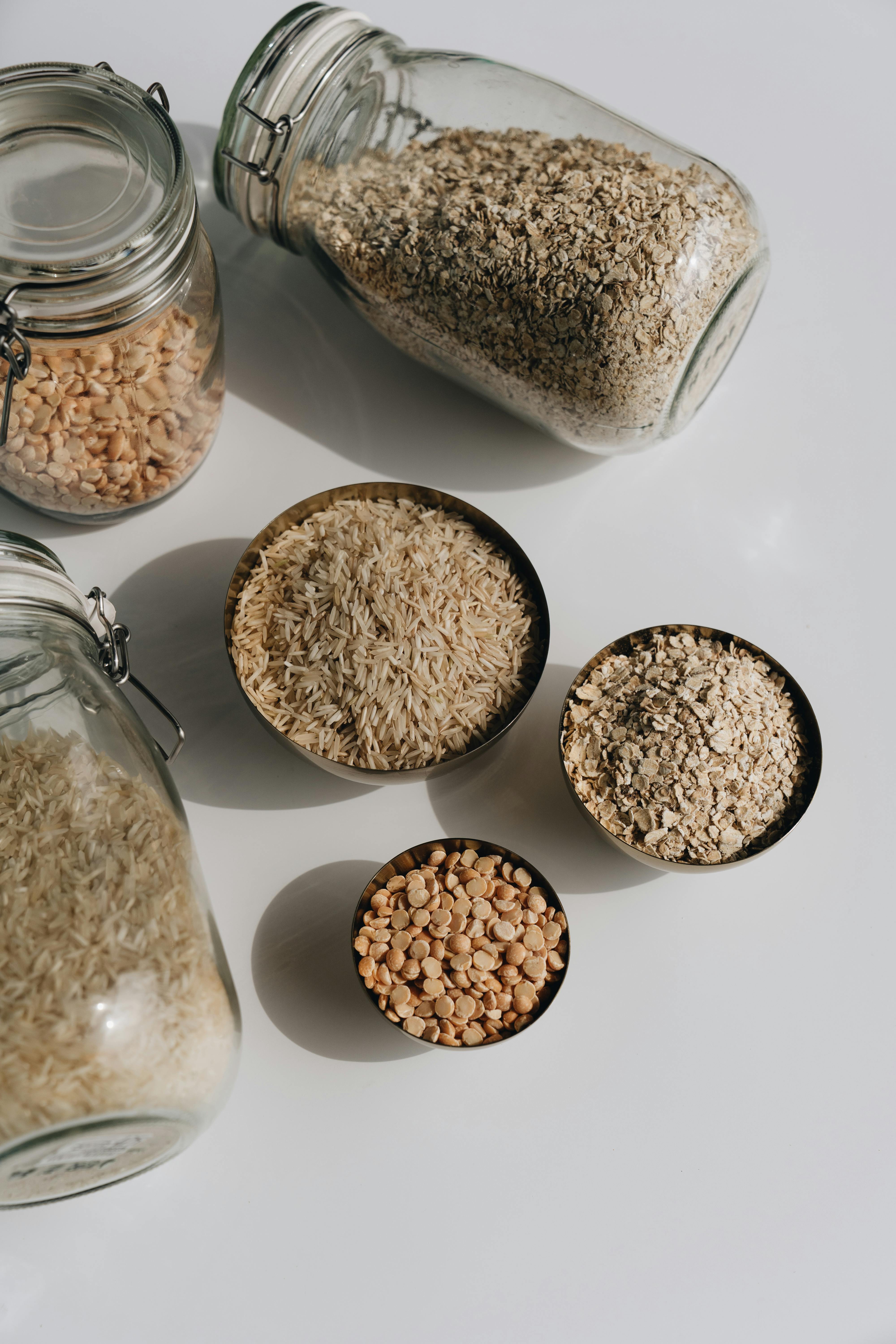Practical Guide to PCOS Diet Plan: Strategies for 2025

Practical Guide to PCOS Diet Plan: Strategies for 2025
Polycystic ovary syndrome (PCOS) affects many women and is characterized by hormonal imbalances that can lead to various symptoms, including irregular periods, weight gain, and fertility challenges. Developing an effective diet plan for PCOS is crucial for symptom management and overall health improvement. In 2025, understanding the right foods and nutrition strategies can unlock a healthier lifestyle for individuals coping with this condition.
This article will provide practical insights into creating a pcos diet plan, focusing on nutritional strategies that tackle insulin resistance, while encouraging hormonal balance. We will explore the best foods for PCOS, practical meal prep tips, and lifestyle changes to enhance wellbeing and manage symptoms.
By following this guide, readers can expect to learn about effective dietary methods tailored for PCOS, the significance of holistic approaches, and how making informed food choices can promote weight loss and improve insulin sensitivity.
Key takeaways from this article include suggestions on pcos-friendly recipes, meal-prep ideas, and enduring dietary habits that improve overall health through improved nutrition for PCOS.
Understanding PCOS and Its Dietary Needs
Building on the foundation set by understanding PCOS, it’s essential to grasp how diet directly impacts symptoms. The condition involves hormonal imbalances that affect metabolism and insulin sensitivity, leading to a cycle of weight gain and further hormonal disruption. Recognizing these intricacies is crucial in managing PCOS through nutrition.
What is PCOS?
PCOS, or polycystic ovary syndrome, is a hormonal health issue that can lead to a variety of symptoms, including irregular periods and weight gain. Women with PCOS often experience elevated levels of androgens, which can complicate their hormonal balance and result in inflammation and insulin resistance.
Understanding your body and how it reacts to various foods can make all the difference when optimizing a PCOS diet plan. Recognizing the symptoms of PCOS, such as anxiety, chronic fatigue, and skin care issues, allows for better dietary choices that support health and hormonal balance.
Identifying Nutritional Deficiencies Within PCOS
Women with PCOS often face nutrient deficiencies, particularly in vitamins such as Vitamin D, magnesium, and omega-3 fatty acids. These nutrients can play a key role in supporting hormonal balance and reducing inflammation. A balanced pcos diet should ensure adequate intake of these essential nutrients.
For example, incorporating foods rich in omega-3 fatty acids can aid in managing inflammation and promoting heart health for women with PCOS. Foods like fatty fish, walnuts, and flaxseeds are excellent sources, and ensuring these are included in meals is vital.
How Diet Impacts PCOS Symptoms
The relationship between diet and PCOS cannot be understated. A poor diet high in refined sugars and processed foods can exacerbate symptoms, leading to weight gain and increased insulin resistance. Conversely, embracing a low glycemic diet, focusing on whole foods rich in fiber and protein, plays a crucial role in managing PCOS symptoms.
Equipping oneself with knowledge about healthy carbs and anti-inflammatory foods provides the necessary foundation for developing a practical meal plan that aligns with individual health goals.
Building a PCOS Meal Plan: Practical Strategies
With these fundamentals established, it's time to delve into creating an effective pcos meal plan. This section will articulate practical ways to implement healthy eating strategies, ensuring that each meal nourishes the body while managing PCOS symptoms.
Incorporating Whole Foods into Your Diet
Whole foods are incredibly important for women dealing with PCOS. These include a variety of vegetables, lean proteins, and whole grains that provide essential nutrients while maintaining steady blood sugar levels. Benefiting from the fibrous content of leafy greens, like kale and spinach, promotes digestion and reduces insulin spikes.
Focus on Low Glycemic Index Foods
Choosing low glycemic index (GI) foods contributes significantly to blood sugar stability. Foods that rank lower on the GI scale help manage insulin levels and are vital for a sustainable diet plan for PCOS. Examples include quinoa, legumes, and most fruits and vegetables.
Healthy Snacking and Meal Portions
Implementing portion control and mindful eating is essential in overcoming cravings that may lead to overeating. Opting for high fiber foods and healthy snacks reduces the likelihood of unhealthy eating patterns. Keeping pcos-friendly snacks, like nuts or yogurt alternatives, at hand encourages better choices throughout the day.

Exercise and Lifestyle Changes for Managing PCOS
Connected to our discussion about diet, incorporating regular exercise is fundamental to managing PCOS. Alongside nutrition, exercise plays a critical role in achieving weight loss and improving insulin sensitivity.
Effective Exercise Types for Weight Loss
Engaging in a mix of aerobic and strength training exercises has been shown to be particularly beneficial for women with PCOS. Activities like jogging, cycling, or swimming can help in reducing weight and stabilizing blood sugar levels, enhancing the overall effects of a pcos diet.
Mindfulness and Stress Management
Stress can severely impact hormonal balance and exacerbate symptoms of PCOS. Implementing mindfulness techniques and stress management practices such as yoga or meditation offers emotional stability and promotes healthier eating habits.
Tracking Progress and Managing Symptoms
Monitoring food intake and exercise routines can amplify the effects of a well-planned diet. Utilizing meal tracking apps enables women to observe their eating patterns, making necessary adjustments to sustain a balanced lifestyle tailored to their specific needs.
Creating Picos-Friendly Recipes
Taking this concept further, it’s time to explore how to create pcos-friendly recipes that are not only nutritious but enjoyable. Understanding flavors and ingredient substitutions allows for diversity in cooking while adhering to dietary principles.
Recipe Adaptations for PCOS
Adapting favorite recipes to fit a PCOS-friendly framework is essential for maintaining an enjoyable diet. Substituting refined flours with gluten-free options, or incorporating healthy fats allows traditional meals to remain delicious while aligning with dietary guidelines.
Quick Meal Prep Ideas
Meal prep can drastically simplify adherence to a pcos diet. Preparing meals in advance helps in controlling portion sizes and ensures availability of healthy options during hectic days. Utilizing containers for portion control can enhance this practice.
Cooking Skills and Community Support
Improving cooking skills is fundamental in transitioning to a healthier lifestyle. Participating in community cooking classes can also create a supportive network, ensuring individuals remain motivated while exploring new, healthier food options.

Q&A: Common Concerns About PCOS Diet
As we conclude, let’s address some common questions about managing a PCOS diet, providing practical solutions and expert recommendations.
What are the most beneficial foods for PCOS?
Incorporating a variety of whole foods rich in fiber, lean proteins, and healthy fats is essential. Focus on foods like leafy greens, whole grains, fatty fish, and legumes.
How does exercise support a PCOS diet?
Exercise aids in weight loss and enhances insulin sensitivity, supporting the dietary changes implemented to manage PCOS.
What role do supplements play in managing PCOS symptoms?
Supplements can provide essential nutrients that might be lacking in the diet. Consulting with a healthcare provider to tailor supplement intake is recommended.
In summary, navigating a PCOS diet involves understanding dietary needs, incorporating nutrient-rich foods, and maintaining a healthy lifestyle. By committing to these strategies, those impacted by PCOS can find comfort in a balanced approach to managing their health.